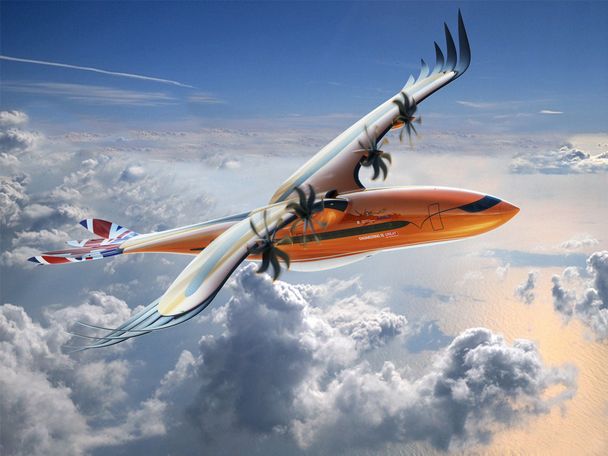An Airbus futuristic conceptual airliner “takes flight” to inspire next-generation engineers

Revealed at this week’s Royal International Air Tattoo air show in the UK, the theoretical design is a hybrid-electric, turbo-propeller aircraft for regional air transportation. Inspired by efficient mechanics of a bird, it has wing and tail structures that mimic those of a bird of prey, while featuring individually controlled feathers that provide active flight control.
One of the priorities for the entire industry is how to make aviation more sustainable – making flying cleaner, greener and quieter than ever before. We know from our work on the A350 XWB passenger jet that through biomimicry, nature has some of the best lessons we can learn about design.
Martin Aston - Senior Manager at Airbus.
Biomimicry’s potential in aircraft design
While not intended to represent an actual aircraft, Airbus’ “Bird of Prey” is based on realistic ideas – providing an insight into what a future regional aircraft could look like. It includes a blended wing-to-fuselage joint that mirrors the graceful and aerodynamic arch of an eagle or falcon, representing the potential of biomimicry (the design and production of materials, structures and systems inspired by nature).
“Our ‘Bird of Prey’ is designed to be an inspiration to young people and create a ‘wow’ factor that will help them consider an exciting career in the crucially-important aerospace sector,” explained Martin Aston, a senior manager at Airbus. “One of the priorities for the entire industry is how to make aviation more sustainable – making flying cleaner, greener and quieter than ever before. We know from our work on the A350 XWB passenger jet that through biomimicry, nature has some of the best lessons we can learn about design. Who can’t help but be inspired by such a creation?”
The Bird of Prey concept was unveiled at the Royal International Air Tattoo event to underscore the UK’s aerospace industry leadership, and also highlights the 50th anniversary of Airbus as an aircraft manufacturer. The conceptual design initiative is backed by the GREAT Britain campaign, the Royal Aeronautical Society, the Air League, the Institution of Engineering and the Technology and Aerospace Technology Institute.